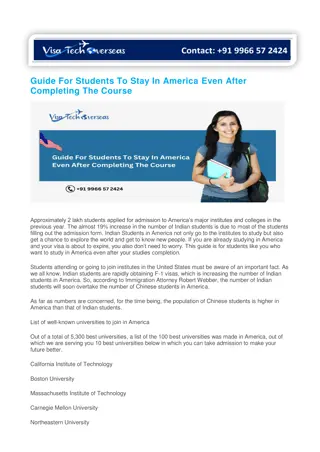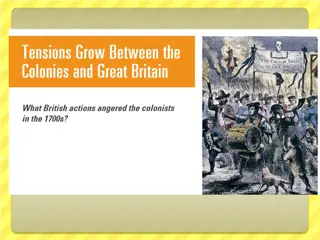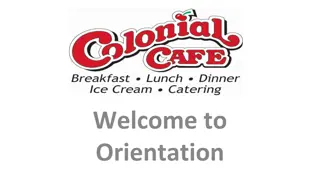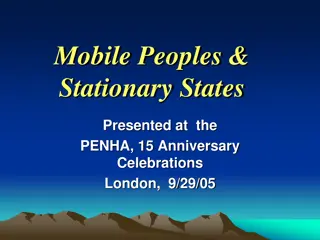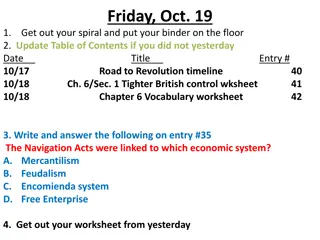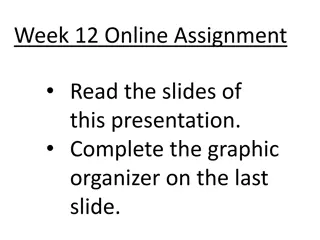
Colonial America Financing: Money and Investing in the Early Settlements
Explore the financial aspects of colonial America, including the practice of pooling money to establish colonies, the role of investors, shares of stock, joint stock companies, and key terms like charter and headright. Learn about the Virginia Company of London and the Virginia Company of Plymouth, which funded early American colonies. Understand the risks and rewards involved in financing colonial ventures.
Download Presentation

Please find below an Image/Link to download the presentation.
The content on the website is provided AS IS for your information and personal use only. It may not be sold, licensed, or shared on other websites without obtaining consent from the author. If you encounter any issues during the download, it is possible that the publisher has removed the file from their server.
You are allowed to download the files provided on this website for personal or commercial use, subject to the condition that they are used lawfully. All files are the property of their respective owners.
The content on the website is provided AS IS for your information and personal use only. It may not be sold, licensed, or shared on other websites without obtaining consent from the author.
E N D
Presentation Transcript
Journal So you want to open a Wawa store?? That sounds like a lot of work, and it will probably cost you some money. So What are all the things necessary in order to open a Wawa? What are the potential risks of doing this? What are the potential rewards of doing this? How are you going to pay for this?
Money and Investing Colonies are not cheap. Not everyone can afford one. People would pool their money together to create a (1)_________________. The pieces of the company that they owned were called (2) ___________________. The people who risked their money were called (3)___________. Once they raised the money, the King would issue a (4)___________giving the company certain rights. Those who could afford passage over were given a (5)____________or land grant. Those who could not were given passage but had to be an (6)___________________, working for several years to pay off their debt.
Key Terms: Financing a Colony Investors: People who risked their money for a project.
Shares of Stock Pieces of a company, ownership of a small part of a company
Joint Stock Company When people would bring their money together to buy something large
Virginia Company of London The joint stock company that funded the Jamestown colony
Virginia Company of Plymouth The joint stock company that funded the Pilgrims (Plymouth Colony)
Charter A list of rules and laws for a colony, must be approved by the King or Queen
Headright A piece of land given to someone who comes to America usually 50-500 acres
Indentured Servant Someone who paid off their debt by working for the person who paid their passage to America
Money and Investing Colonies are not cheap. Not everyone can afford one. People would pool their money together to create a (1)_________________. The pieces of the company that they owned were called (2) ___________________. The people who risked their money were called (3)___________. Once they raised the money, the King would issue a (4)___________giving the company certain rights. Those who could afford passage over were given a (5)____________or land grant. Those who could not were given passage but had to be an (6)___________________, working for several years to pay off their debt.
Key Trade Terms Mercantilism The idea that colonies exist for the benefit of the mother country
Exports Goods being shipped out of (exiting) a country
Imports Goods being shipped into a country
Navigation Acts Passed so that England knew exactly what was being made and produced in the colonies
Smuggling The illegal importing and exporting of goods
Triangular Trade America/Africa/West Indies
Triangular Trade America/West Indies/England
The Three colonial regions 1. New England New Hampshire, Massachusetts, Connecticut, Rhode Island 2. Middle -New York, Pennsylvania, New Jersey, Delaware 3. Southern -Maryland, Virginia, North Carolina, South Carolina, Georgia
New England New Hampshire, Massachusetts, Connecticut, Rhode Island Small farms subsistence agriculture, growing only what you need to eat Crops, harvesting animals, lumber, fishing Colder climate Primarily religious in nature, devout Created for religious freedom A better relationship with the Native Americans
The types of colonial governments: There are three types: 1. Charter 2. Royal 3. Proprietary
Charter Colony A colony that is governed by the rules of the charter
Royal Colony A colony governed directly by the King or Queen (usually a royal governor)
Proprietary Colony A colony that is governed by the proprietor (owner) of the colony
Colonial Norms and Values For the following norms and values, answer these two questions: Why do you think this was a custom or value? Is this true today? Would it be accepted today? Why? Why not?
Widows remarried immediately. One widow served the leftover refreshments from her first husband s funeral at her second wedding.
Women had many children. One Massachusetts woman had twenty-seven children.
Bleeding was a common way to treat illnesses, and when the doctor was unavailable, a barber was called in.
Letter carriers delivering long distance mail sometimes entertained themselves by reading the letters they carried.
Funerals and weddings provided a good excuse for drinking liquor.
Where would you live? Would you live in the New England, Middle, or Southern colonies if you were a Farmer Slave Quaker Carpenter Mill owner Clothing manufacturer Fisherman Butcher Cigarette maker Pilgrim Preacher
You Be the Judge. After reading each of the following scenarios, what do you think an appropriate punishment should be?
Breaking the Sabbath In Puritan life Sundays are set aside as a serious day of communion between man and his maker a day of worship, sacrifice, and prayer. Breaking the Sabbath is everybody s business in Massachusetts Bay Colony.
Gambling In Puritan society, gambling in any form is strictly forbidden. It is a sinful violation of the law of honesty and industry. A man s work, not chance, should determine his success in life.
Punishment: Wear G on chest, a fine of 20 shillings.
Theft In one of the Bible s Ten Commandments, stealing is a condemned.
Punishment: Branding a T (thief) on forehead with a hot iron, five lashes with a whip, or cutting off one hand.
Rebellion Against Parents We Puritans have a law which states that if any child above age 16 curses, smites, or is rebellious towards his father or mother, or does not obey his parents command.
Punishment: If guilty, parent could put him to death. Minimally, the youth must receive a whipping and considerable time in the stocks.
Vulgar Language There is no more certain sign that a person s moral code has weakened than the use of profanity. Cursing in oaths, using the Lord s name in vain or anger is an abomination.
Punishment: Five lashes with a whip, pins stuck through the tongue.
Drunkenness All Puritans, especially the church elders, are deeply concerned about excessive drinking in our community taverns and inns. The sin is drinking in excess, when words are slurred and behavior is outrageous.

